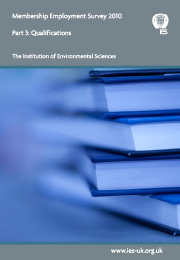With tuition fees rising yet again, it is inevitably questioned whether the costs of qualifications is now exceeding their value. It is vital that people beginning their career are able to make informed decisions regarding subject choices and qualification levels. These early decisions can determine which opportunities are available in the future, particularly in terms of the employment field, promotion, benefits and job security.
Looking beyond university, it is important for environmental science professionals to continue to maintain their qualifications. The Chartered Environmentalist (CEnv) designation was launched in 2004, enabling professionals to demonstrate their capability in this field, and their commitment to continuous professional development (CPD). It is crucial for professionals to understand the impact of Chartership on their career prospects to determine whether it is worthwhile pursuing this professional benchmark.
In accordance with its responsibility as a professional body the Institution of Environmental Sciences (IES) undertook research into the relationship between qualifications and the employment of its membership. In August 2010 the IES invited its Fellows, Full and Associate Members to take part in a survey regarding their previous qualifications and current employment situation. This report is the third in a series, dealing specifically with the impact of qualification choices on employment and promotion.
The aim of this report is to enable people pursuing careers in this field to making informed choices. The first section of this report outlines the method of surveying the members, followed by the results relating to highest qualification levels, subject choices and Chartership status. From these results, conclusions and recommendations are drawn for the consideration by the IES Council and the membership.


